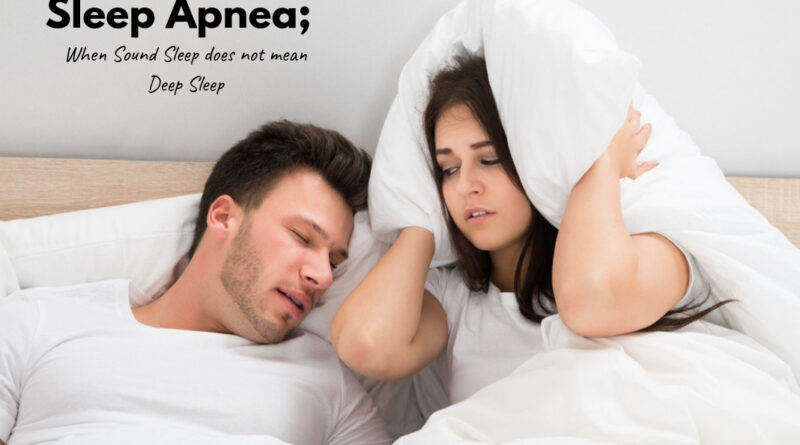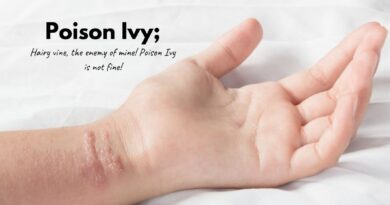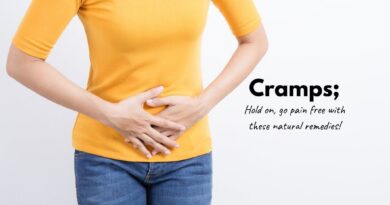A Guide to Soundless, Sound Sleep – Curb your Sleep Apnea
Sleep apnea has its origin from the Greek word “apnea” means “without breath.” It is a serious condition in which a person’s breathing is erratic and intermittent, that is the person has narrow/restricted air pathways which could lead to waking up while in sleep and gasping for breath.
In most of the cases, people are unaware that they are suffering from some kind of sleep apnea and believe that their sleep cycle is normal but with a slight hindrance of snoring. Sleep apnea can sound a lot like snoring. However, it is not even close.
Sleep apnea if untreated could be fatal to the patient. This condition is common, affecting more than 18 million Americans(1).
Sleep apnea can cause an array of health complications apart from making you feel tired/fatigued in the morning. If left untreated, it could cause:
- Poor immunity
- Increase your risk of having a mental illness
- Increased risk of memory loss
- Heart failure
There are primarily three main types of sleep apnea: obstructive, central, and complex sleep apnea syndrome. Out of these, Obstructive Sleep Apnea (OSA) is the most common form, affecting 2-4% of the population(2).
Obstructive sleep apnea presents hindrance in breathing because the tracheal muscles relax and the trachea narrows as you sleep(3). The person struggles to breathe but cannot inhale effectively because of the narrowed air pathway.
They are several treatments that are present in the current market that include breathing devices, medication. However, most of them are only effective for short term usage and are not effective in the long run.
Some lifestyle changes and these home remedies will drastically increase the quality of your life and your sleep in the long run.
Table of Contents
How to cure Sleep Apnea?
- Foods
- Natural Treatments
- Herbs and Essential Oils
- Supplements
- Do’s and Dont’s
CURE 1: Foods
It should come as no surprise that nutritious food and a balanced diet can come a long way in helping you control, cure and prevent sleep apnea. Most people suffering from this condition have either an erratic diet pattern/eat unhealthy foods causing this discrepancy in their bodies.
1. Raw Honey
If you only considered honey as a sweetener and a condiment, then you are up for a revelation that could change your mind. Honey is a well known anti-inflammatory agent that could help alleviate and reduce the inflammation in the trachea.
Why Does it Work?
Honey is very useful in treating sleep apnea owing to its anti-inflammatory properties(4) that help in reducing the swelling in and around the tracheal area that could be obstructing the airways. Additionally, it also acts as a lubricant to the throat(5), forming a layer over the throat and thereby preventing snoring(6), which is one of the most common symptoms of sleep apnea.
Additionally, honey also promotes good sleep and provides instant relaxation. Moreover, it helps maintain healthy body weight and prevents obesity. Obesity is considered as one of the leading causes of sleep apnea. Hence, honey works on two levels, helping you in the long run.
How to Use?
You could use honey for sleep apnea, in several different forms and concoctions. You could directly gulp down a spoon of honey. However, this tends to become a sticky affair at times. So here are the different methods you could use to reduce your sleep apnea.
Procedure:
- Add a spoon of raw honey to a glass of warm water and drink it before you go to sleep.
- Alternatively, you could mix a teaspoon each of honey and black pepper in a glass of warm water. Sip on it before going to sleep.
- If you are trying to lose weight, you could drink a glass of warm water which has a spoon of honey and a spoon of lemon juice, in the morning preferably on an empty stomach.
How Much to Use?
You could follow these remedies for about 1-3 months, and during the course of the time, you would notice a significant change in your sleeping pattern and weight. Additionally, you could also observe, or instead, your partner could observe the suppressing symptoms of sleep apnea.
2. Garlic (Allium Sepa)

Garlic, the queen of traditional medicine, is known to be a potent natural remedy for sleep apnea that could also cure an array of diseases including respiratory disorders and cold.
Why Does it Work?
Garlic has several active chemical compounds that make up for its medicinal benefits. However, allicin is the most potent chemical that works as an anti-inflammatory agent(7) and helps in the reduction of swelling seen in the tracheal area of the body.
It alleviates the large tonsils that are inflamed(8) and opens up the restricted air pathway, thereby making it easier to breathe. It instantly works, and you could see its action on your symptoms almost the same night you have taken it.
How to Use?
Garlic is such a vital treatment option in traditional medicine, that currently, you have several ways of ingesting it. Ranging from teas, extract, supplements to tinctures and powders. However, all these are equally potent; it is strongly recommended that you stick to the old school method of using garlic. That is directly swallowing a clove.
It is recommended that you eat 2 to 3 cloves of garlic on an empty stomach and wash it down with some water. Alternatively, you could also include garlic in your food or take garlic supplements after consulting your doctor/physician.
It is to be noted that for garlic to act on your sleep apnea, it is recommended that you either crush them before consuming it or finely chop it when you add it in your food. This is to be done as it helps allicin to be released and makes it easier for it to act on the body.
How Much to Use?
You could eat the garlic as a daily habit, however, it is not recommended that you go overboard as it could cause severe acidity, owing to the acidic nature of garlic. It is recommended that you stick to 2-3 cloves per day divided equally throughout your day. For the garlic supplementation, you could consult with our physician/doctor for the dosage and the usage.
3. Turmeric (Curcuma Longa)

This is another root that is considered as the jewel of traditional medicine. Turmeric is a potent anti-inflammatory agent that can reduce inflammation in the airway and help increase the breathing quality while sleeping.
Why Does it Work?
Curcumin, the active ingredient present in turmeric is an anti-inflammatory agent. It acts on the trachea and helps in alleviating the inflammation present in the site of inflammation. Additionally, In a study(9) conducted about neurocognitive impairments caused due to sleep apnea, it was observed that curcumin presented potency in dealing with these impairments.
How to Use?
Turmeric is such a vital treatment option in traditional medicine, that currently, you have several ways of ingesting it. Ranging from teas, extract, supplements to tinctures and powders. However, all these are equally potent; it is strongly recommended that you stick to the old school method of using turmeric, that is dissolving it in milk and consuming it.
Milk also has an additional benefit, that is it consists of tryptophan, an amino acid that helps induce sleep. In a warm glass of milk, add a spoon of turmeric and chug it down before going to sleep.
How Much to Use?
You could drink this concoction, every day before going to sleep as it not only increases your sleep quality but also helps in opening up your restricted pathways and thereby helping you control/cure sleep apnea. Do follow this regimen for 2-3 weeks and then analyze the condition.
CURE 2: Natural Treatments for Sleep Apnea
There are several alternative treatments for sleep apnea that you could perform in your home that could be used for instant relief. These remedies if included in your daily regimen could bring a monumental change in your condition.
1. High-Intensity Interval Training (HIIT)
HIIT is an abbreviation for High-Intensity Interval Training, which is an exercise regimen that is specifically devised to fight against several health conditions. It could be used for treating depression, sleep apnea, and several other medical conditions.
Why Does it Work?
Exercise in any form, when included in the daily regimen, pushes the body and the muscles of the body to be challenged and helps them stay in shape and fit. HIIT is an intensive training session to the body, and during this period the central nervous system releases a chemical compound referred to as endorphins. These natural opiates(10) are known to have anti-inflammatory properties and analgesic properties, that would help alleviate the symptoms present in the site of infection.
How to Use?
High-intensity interval training is defined as the combination of short, high-intensity bursts of physical exercises, which includes slow, recovery phases and this is repeated throughout one short 15–20-minute session.
Generally, moderate exercise causes to increase the heartbeat to about 50-70%, however, HIIT is done at 85-100% of maximum heart rate. One of the major appealing points of HIIT is that it could be done anywhere, in your own home or on a beach.
Anywhere you’d like with minimal to no equipment. A recommended way to begin this practice is to start brisk walking on the track, walking the curves and sprinting the straight pathways.
How Much to Use?
Exercise that is not moderated is linked to reduced life expectancy. It is advised that you strongly consult your doctor/physician about adhering to this regimen. It is to be noted that if you suffer from any physical ailments such as joint pains, skeletal muscle pains, it is recommended that you don’t practice this regimen.
2. Orofacial Exercises
These are a set of three exercises that could help you strengthen your trachea, mouth and soft palate. Hence it is referred to as orofacial exercises. These exercises are simple and could be performed by anyone suffering from sleep apnea. They are classified into four different types
- Mouth exercises
- Jaw exercises
- Throat exercises
- Soft palate exercises
Why Does it Work?
Exercise in any form, when included in the daily regimen, pushes the body and the muscles of the body to be challenged and helps them stay in shape and fit. HIIT is an intensive training session to the body, and during this period the central nervous system releases a chemical compound referred to as endorphins.
These natural opiates are known to have anti-inflammatory properties and analgesic properties, that would help alleviate the symptoms present in the site of infection. Additionally, it also helps in strengthening the muscles that are located in and around the airway.
In a study(11) conducted on 31 people, who suffered from obstructive sleep apnea, it was observed that practicing these exercises and adhering to them for three months had shown significant improvement.
How to do it?
These exercises are very simple to execute and don’t need any equipment. You could do it while you are at your office, during your commute. Anywhere your comfort.
1. Tongue Exercises: Most people don’t even take into account that the tongue is a muscle. Hence this makes it a liability; if this muscle loses it contractibility, it is therefore recommended that you try to rotate your tongue extensively in a clockwise direction and vice versa. while simultaneously putting your tongue and trying to stretch it out. If the tongue collapses while you sleep, it could block the whole airway causing a severe form of sleep apnea.
2. Jaw Exercises: A tense jaw/ a stressed mandibular joint could contribute to obstructive sleep apnea and reduce your sleep quality and make your breathing erratic. The jaw has to be tight, thereby allowing it to place pressure directly on the breathing passages. Jaw exercises that include simulation of moving the jaw around and chewing and grinding movements for 5 minutes could bring a monumental change.
3. Throat Exercise: Weakened throat muscles could spell disaster for you, as it could collapse during your sleep and thereby causing the airway to be blocked. Throat exercises help to build, tone and strengthen the muscles. Additionally, these exercises are also known to open the throat up more to prevent it from closing.
4. Soft palate: The soft palate muscles are located around the base of the tongue, that is present in the back of your mouth. A weak, soft palate presents the chance of flapping around and its tip can fall onto the tongue causing a blockage for the air pathway. The soft palate exercises lift, tone and strengthen the soft palate.
How Much to Use?
You can do these exercises at least for 15-20 minutes in a day, and it is ideally recommended that you try to do it in the morning.
3. Nasal Strips
These are physical band-aid like strips that you could either place inside your nose or outside (depending on the type). These strips are considered to be as an alternative to CPAP therapy and effectively can reduce the symptoms caused by sleep apnea.
Why Does it Work?
Nasal dilators are simple, and they work by pulling the nostrils of the nose wide open, much like lifting the sides of a peaked tent to make more space to accommodate for the air passage, thereby helping in easing breathing through your nose and is known to reduce snoring.
This can be pointed to increased airflow through the nose. When obstruction occurs in the nose — due to whatever reasons that is the narrowness from anatomy, a deviated septum, or congestion. It only facilitates a trickle of air enters instead of the normal turbulent. As a result, the tissues lining the throat vibrate and cause snoring. With the use of a nasal dilator, the amount of air that enters the nose can be increased drastically.
A study(12) of 26 snorers found that a nasal dilator is effective in reducing the intensity of snoring as measured by a sleep study, in 73 percent of people. 19 people of this group had shown improvement when checked with polysomnography. Hence, establishing the efficacy of these strips as an effective remedy to cure/control sleep apnea.
How to Use?
You could directly buy these strips from the nearest convenience store or pharmacy and use them after consulting with your doctor/physician. It is strongly advised that you don’t use this if you suffer from asthma as it is known to be an irritant in some cases.
How Much to Use?
For a healthy 8 hour sleep you could use one strip, it is recommended that you change your strip every day and use a new one.
CURE 3: Herbs and Essential Oils for Sleep Apnea
Herbs are naturally occurring substances which originated from plants or plant derivatives. They show immense potential in curing a lot of diseases effectively including respiratory disorders, cardiac problems, and digestive problems. Herbal remedies for sleep apnea are easily accessible and don’t bear side effects.
1. Chamomile
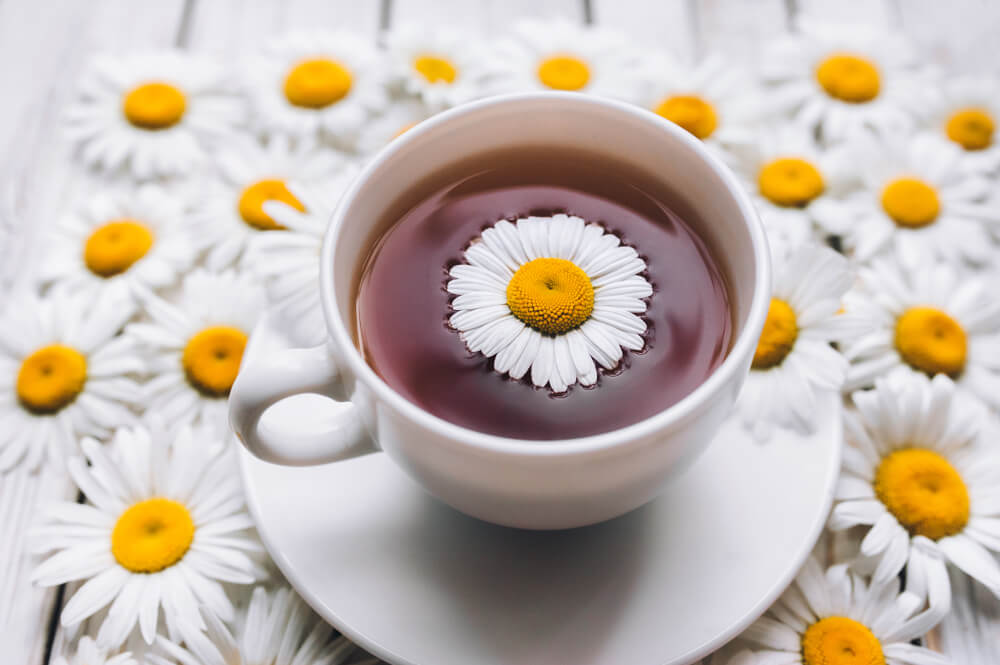
Chamomile is a gentle, relaxing and antispasmodic herb that could bear several health benefits while dealing with sleep apnea. Chamomile is a known anti-inflammatory agent and antispasmodic agent, that is it alleviates inflammations and stops the tracheal muscles from contracting rapidly (spasms).
Why Does it Work?
Chamomile contains the flavonoid apigenin, the active ingredient that helps you relax and to be sedated. Furthermore, it can help relax your nerves and muscles and thereby promoting a healthy sleep cycle. The herb is known to have anti-inflammatory properties as well, that help in alleviating the inflamed sites causing the discomfort and snoring while sleeping in sleep apnea patients.
In an investigative study(13) about teas that helped increase the sleep quality, chamomile was regarded as one of the potent ways to improve the sleep quality in patients and additionally, it also had no side effects.
How to Use?
Conventionally you could have chamomile tea as it proved to be a potent way of consuming this herb, however, you could still use the tincture, extract or supplements which are as effective as the tea. However, you would need to consult with your doctor/physician before using this herb for sleep apnea treatment
Procedure:
- Boil a cup of water for 3-4 minutes.
- Let it simmer for five minutes on the stove.
- Add a teaspoon of chamomile tea in the cup.
- Next, add in the boiling water, let it brew for a minute or two until you see the color change.
- Consume it after it rests it cools down considerably.
How Much to Use?
It is recommended that you start with a dose of 2 cups a day. You could then increase the dosage as suited, however, before increasing your dosage it is recommended that you consult with your physician if you could adhere to this regimen.
As chamomile tea in excess could cause the contrapositive effects, instead of sleeping you’d be wide awake. Hence, strictly adhere to the dosage.
2. Lavender
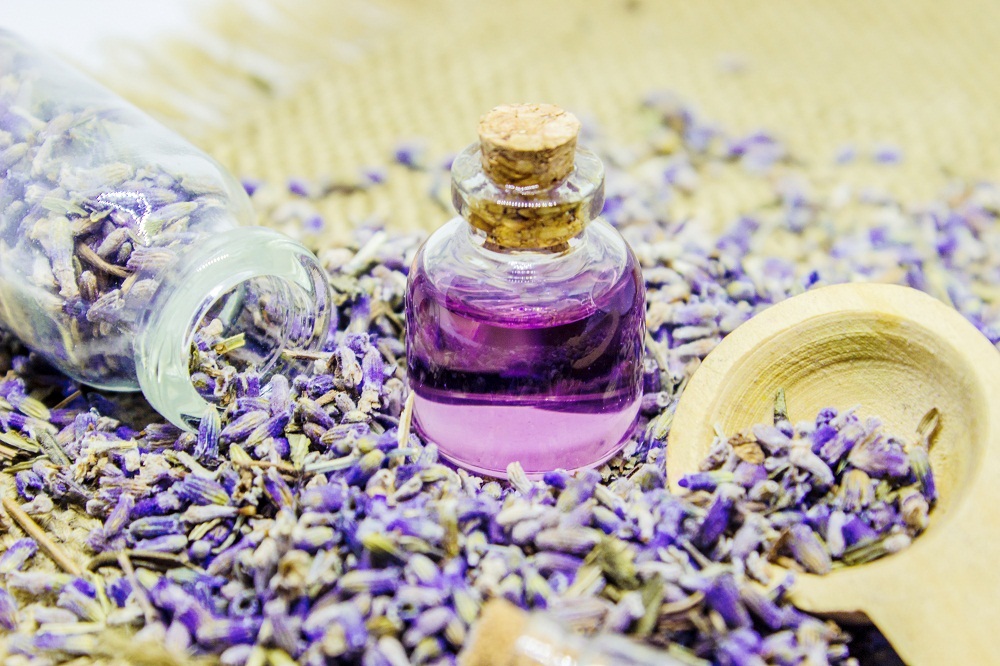
Lavender has a very soothing, sedative effect on the body, which will relax all muscles in the throat and mouth, thereby promoting a better quality of sleep. Lavender has been used for eons to promote better sleep and is also used in aromatherapy to treat several health conditions including respiratory disorders.
Why Does it Work?
Lavender has a soothing, sedative effect on the body, and when inhaled or applied topically they can induce sleep as well as help in maintaining a consistent sleep pattern. Lavender is also believed to be an anti-inflammatory agent, and thereby it helps the body in soothing the inflammation in the trachea causing the sleep apnea.
In a study(14) conducted about odorants and their effects on sleep apnea, it was observed that lavender oil that was diffused into the air was able to help patients suffering from sleep apnea maintain an uninterrupted sleep throughout all the sleeping phases.
How to Use Lavender Essential Oil for Sleep Apnea?
Add in a few drops of lavender essential oil in a carrier oil such as coconut oil, castor oil.
Massage the blend on your forehead and temples. You could also apply it behind the ear or back of the neck which are the action points that help your body relax.
Alternatively, you can add lavender essential oil to your diffuser and inhale its soothing aroma, while you sleep. You could also add a few drops of the oil to your bathwater and have a rejuvenating bath.
How Much to Use?
It is recommended that you use it moderately as it is a very potent ingredient and may cause an allergic reaction when used in excess. You could stick to using 3-4 ml of the oil for the whole day. It is to be noted that you need to mix this with a carrier oil when you are applying it directly on your skin.
3. Peppermint
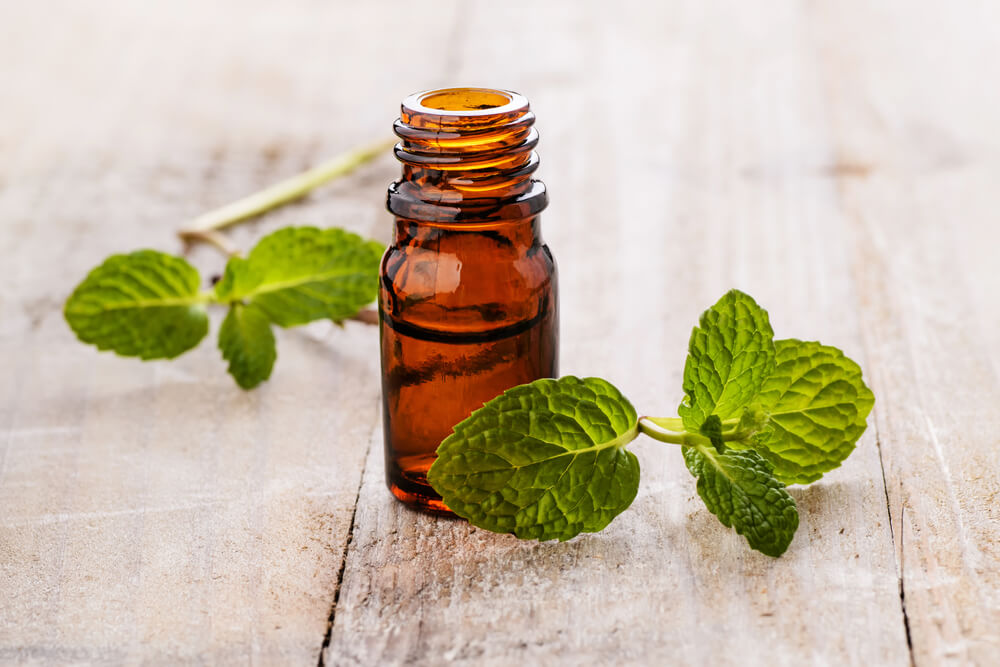
This herb has been used to treat several medical conditions, especially respiratory disorders as it is a known nasal decongestant and also has anti-inflammatory properties that could help alleviate the symptoms of sleep apnea and promotes better breathing and sleep cycle.
Why Does it Work?
Peppermint as an herb works wonders when you are suffering from sleep apnea caused by nasal decongestion. Peppermint has several active ingredients, out of which the main one is menthol. Menthol directly acts on the mucus and dries it out and helps in clearing the congestion and thereby helping in increasing the airflow to the lungs. Peppermint is also an anti-inflammatory agent, it, therefore, acts on the sites of inflammation and helps in alleviating the inflammation.
How to Use Peppermint Oil for Sleep Apnea?
Add in a few drops of peppermint essential oil in a carrier oil such as coconut oil, castor oil.
Massage the blend on your forehead and temples. You could also apply it behind the ear or back of the neck which are the action points that help your body relax.
Alternatively, you can add peppermint essential oil to your diffuser and inhale its soothing aroma, while you sleep. You could also add a few drops of the oil to your bathwater and have a rejuvenating bath.
How Much to Use?
It is recommended that you use it moderately as it is a very potent ingredient and may cause an allergic reaction when used in excess. You could stick to using 3-4 ml of the oil for the whole day. It is to be noted that you need to mix this with a carrier oil when you are applying it directly on your skin.
Also Read: Antiviral Herbs to Keep You Healthy
CURE 4: Supplements for Sleep Apnea
Supplements form the adjuvant therapy, .i.e you implement this treatment alongside the primary treatment. Supplements form the backbone for your recovery as lacking nutrients and minerals could lead to weakened immunity which makes your body incapable of healing inflammations caused by sleep apnea.
1. Magnesium

Magnesium is a natural mineral that helps the body keep blood pressure s; it promotes heart health; it also regulates nerve and muscle function. A lack of magnesium could spell out disaster to your body, This macro-essential mineral is known to help in more than 600 enzymatic reactions, and lack of it could cause sleep problems, depression, and snoring.
Supplementing your body with magnesium could be a short term method of controlling your symptoms.
Why does it work?
It is observed that in sleep apnea, the surrounding muscles and the trachea are in a constricted state, that is they have a narrow passage. Thereby causing restricted air to flow through the passage.
Although there are no conclusive studies on the functioning of magnesium for sleep apnea, it is hypothesized that magnesium ions help in reducing the constriction seen in the muscles, as it tends to have a calming effect on the neurons(15) as it blocks the ‘excited ions’ and inhibits the neurons from being in an excited state.
How to use?
Magnesium supplementation is very simple and could be followed by just using them right from the container. Although it is strictly advised that you check with your doctor/physician before you do so.
How much to use?
The Institute of Medicine(16) suggests supplementing your body with 310- 360 milligrams of magnesium daily to cure sleep apnea symptoms. However, it is suggested that you start with a lower dosage and then up your dosage as time passes after consulting with your doctor/physician.
2. Vitamin D

Vitamin D is a fat-soluble vitamin with a plethora of important functions such as calcium absorption for bone formation and homeostasis to maintain constant body temperature. The prevalence of vitamin D deficiency is an epidemic and is rapidly progressing in developing countries. It is also associated with similar metabolic disturbances in relation to sleep apnea.
Why does it work?
Although there aren’t any conclusive studies as to how to vitamin D aids in curing/preventing sleep apnea. It has been hypothesized that vitamin D helps in boosting the immune system and the overall wellness of the body, thereby helping the immune system to heal the body of the inflammation present in the trachea.
However, there have been several studies that have been conducted on the efficacy of the vitamin on sleep apnea. It was observed that vitamin D supplementation drastically helped in increasing the sleep quality and helped in reducing the inflammation in the trachea.
How to use?
Vitamin D supplementation is very simple and could be followed by just using them right from the container. Although it is strictly advised that you check with your doctor/physician before you do so.
How much to use?
It is suggested that you supplement your body with 2000 IU of Vitamin D daily to cure sleep apnea symptoms. However, it is suggested that you start with a lower dosage and then up your dosage as time passes after consulting with your doctor/physician.
Do’s and Don’ts
Things to avoid things to Do1Avoid smoking and exposure to irritants like dust: smoking worsens sleep apnea, beyond the point of recovery Gargle with salt water: This may help in providing instant relief from the pain. 2Avoid consuming processed foods: as they are known to acidify the blood. Exercise: Studies have shown that exercise can lower sleep apnea.
Additionally, exercise may help ease the symptoms of sleep apnea.3Avoid sleeping on your back: As it could cause a hindrance for your breathing. Practice The Buteyko Breathing method: It entails breathing through the nose rather than through the mouth, thereby increasing the volume of air.
Sleep apnea is a curable condition if you are using the remedies that are listed above religiously. However, you need to bear in mind that only obstructive sleep is a curable type of sleep apnea using natural remedies. These home remedies could be beneficial for curing your sleep apnea if practiced for a long time and without missing on the doses/regimen.

